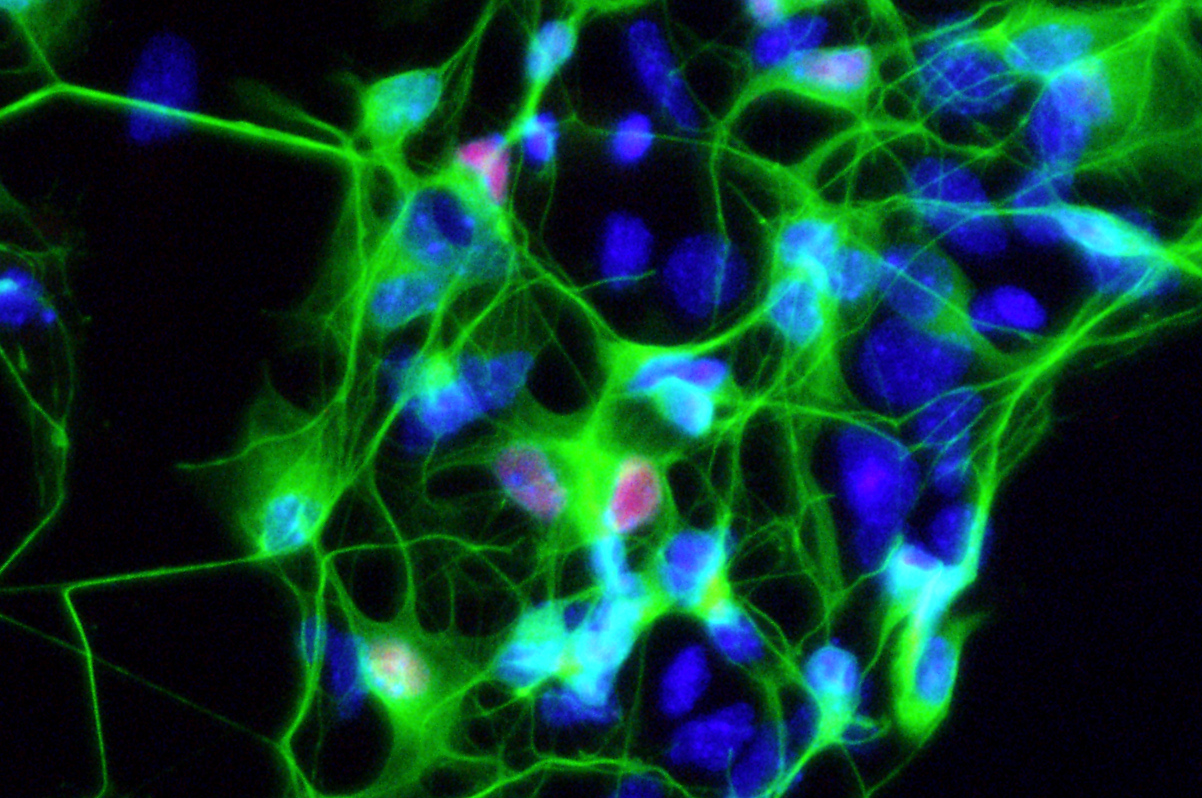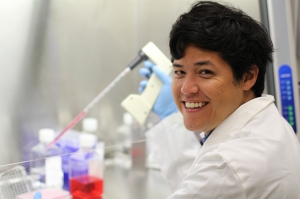A mutation in the same gene is found in 10 percent of patients with two neurodegenerative diseases — frontotemperal dementia (FTD) and amyolateral sclerosis (ALS), also known as Lou Gehrig’s disease. Determining how this mutated gene contributes to ALS will be a focus of research by Justin Ichida, PhD, assistant professor of Stem Cell Biology and Regenerative Medicine, who has received a Muscular Dystrophy Association (MDA) research grant totaling $300,000 over three years.
Ichida’s lab will use “cellular reprogramming” to transform the blood cells of ALS patients with the mutation into motor nerve cells in a Petri dish. Because the mutated gene contains faulty instructions for producing a protein called C9ORF72, these cells are expected to degenerate in the protein’s absence. Ichida hopes to rescue the cells by exposing them to a normal level of the protein, and to reveal the mechanism that allows the protein to protect motor nerve cells.
“This work will establish C9ORF72 protein as a key therapeutic target for ALS patients,” Ichida said. “I’m grateful to the Muscular Dystrophy Association for its commitment to helping patients with a wide range of neuromuscular diseases, including ALS.”
The MDA awarded a total of $10 million in new research grants to scientists conducting leading-edge discovery for muscular dystrophy, ALS and related muscle-debilitating diseases. In all 350 grant requests were received, the most in the MDA’s 65-year history of funding basic, translational and clinical research. Grants were awarded to 36 researchers, half of them new to the MDA.
— Claire Orphan and Cristy Lytal



